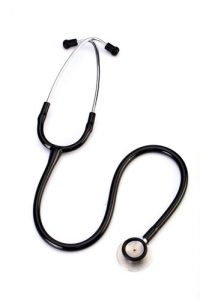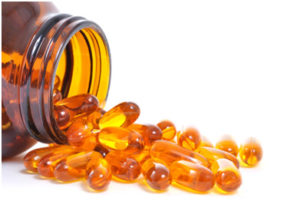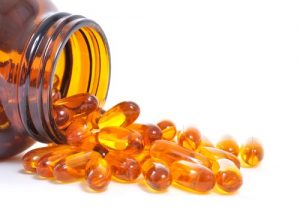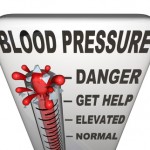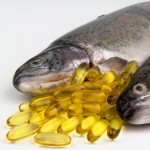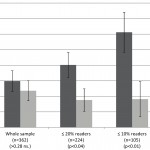What Are We Missing?
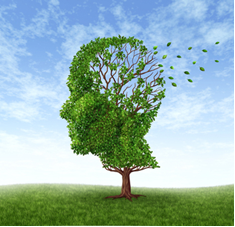 We are an aging population. As such, issues like cognitive decline, dementia, and Alzheimer’s Disease are of increasing concern. After all, what is the good of reaching your “Golden Years” with a healthy body if you lose your mind?
We are an aging population. As such, issues like cognitive decline, dementia, and Alzheimer’s Disease are of increasing concern. After all, what is the good of reaching your “Golden Years” with a healthy body if you lose your mind?
The ability of the omega-3 fatty acids DHA and EPA to reduce the risk of cognitive decline, dementia, and Alzheimer’s Disease is controversial. Some studies say yes. Others say no.
When studies are conflicting most experts simply conclude the treatment is unproven. I am sympathetic to that viewpoint, but I first like to ask the questions: “Why are the studies conflicting? What are we missing?”
I start by evaluating the strengths and weaknesses of the individual studies.
- If the studies claiming the treatment works are weak, I am content to “join the chorus” and consider the treatment unproven.
- If the studies claiming the treatment doesn’t work are weak, I am a strong advocate for more well-designed studies before we conclude that the treatment doesn’t work.
- If both the “pro” and “con” studies are strong, I want to ask, “What are we missing?”
This is the situation with studies asking whether DHA reduces the risk of Alzheimer’s Disease and other forms of cognitive decline as we age.
- Association studies show that greater intake and higher blood levels of the omega-3 fatty acids EPA and DHA are associated with lower risk of Alzheimer’s Disease.
- However, most placebo-controlled clinical trials with either DHA alone or DHA + EPA have come up negative. Of course, one can always argue that most of the placebo-controlled clinical trials were too short or too small to show a statistically significant effect. But, my question remains, “What else are we missing?”
One recent study has provided an interesting clue. The authors of the study postulated that B vitamins were required to deliver omega-3 fatty acids to the brain, and their study showed that omega-3 fatty acids were only effective at decreasing the risk of cognitive decline in subjects who also had optimal B vitamin status.
In other words, this study suggested that studies on the effect of omega-3 supplementation and risk of developing Alzheimer’s are doomed to failure if a significant percentage of the subjects have sub-optimal B vitamin status.
The authors of the current study ( IC Arellanes et al, EBioMedicine, doi.org/10.1016/j.ebiom.2020.102883) proposed two additional hypotheses for the negative results of previous clinical trials and designed an experiment to test their hypotheses. Their hypotheses were:
- Uptake of DHA and EPA by the brain is very inefficient, and previous studies have not used sufficient doses of DHA or DHA plus EPA to see a significant effect on cognitive impairment.
- The APOE4 gene further decreases the uptake of DHA and EPA by the brain.
Before I describe how the study was done, I should probably provide some context by describing how DHA and EPA reach the brain and the role of the apoE protein in the process. It’s time for my favorite topic: “Biochemistry 101”.
Biochemistry 101: What Does The ApoE Protein Do?
 If you have ever tried to mix oil and water, it should come as no surprise to you that fats, including DHA and EPA, and cholesterol are not water soluble. That leaves our bodies with a dilemma. How do they get the fat and cholesterol we eat to pass through our bloodstream and get to our cells, where they are needed?
If you have ever tried to mix oil and water, it should come as no surprise to you that fats, including DHA and EPA, and cholesterol are not water soluble. That leaves our bodies with a dilemma. How do they get the fat and cholesterol we eat to pass through our bloodstream and get to our cells, where they are needed?
Our body’s solution is to incorporate the fat and cholesterol into particles called lipoproteins. Lipoprotein particles sequester the fat and cholesterol in their interior and surround them with water soluble phospholipids and proteins. Lipoproteins allow our bodies to transport fat and cholesterol through our bloodstream to the tissues that need them.
The next question, of course, is how the lipoproteins know which cells need the fat and cholesterol. This is where apoproteins like apoE come into play. We can think of the apoE protein as a zip code that directs lipoproteins to cells with an apoE receptor.
Our nervous system contains lots of apoE receptors, and binding of the apoE protein to its receptor is instrumental in the delivery of DHA, EPA, and cholesterol to our nervous system.
DHA and cholesterol are both important for brain health. That is because they are major components of the myelin sheath that wraps around our neurons and protects them. EPA may also be important for brain health because its anti-inflammatory effects are thought to prevent the accumulation of the amyloid plaques that are the hallmark of late-onset Alzheimer’s Disease.
There are three major versions of the APOE gene, APOE2, APOE3, and APOE4. Each of them plays slightly different roles in our body. However, it is the APOE4 version that is of interest to us. About 25% of us have the APOE4 version of the APOE gene and it increases our risk of developing Alzheimer’s Disease by a factor of two.
We do not know why this is, but one hypothesis is that lipoproteins with the apoE4 protein have more difficultly delivering much needed DHA, EPA, and cholesterol to the brain. This is one of the hypotheses that the authors set out to study.
How Was The Study Done?
 There are two things you should know about this study.
There are two things you should know about this study.
- This was a pilot study designed to test the author’s hypotheses and allow them to choose the correct dose of DHA to use for a subsequent study designed to test whether high-dose DHA can reduce the risk of developing Alzheimer’s Disease.
- This was a very small study. That’s because the only way to determine how much DHA and EPA reaches the nervous tissue is to perform a lumbar puncture and obtain cerebrospinal fluid at baseline and again at the end of the study. Lumbar punctures are both painful and a bit risky. They were lucky to find 26 individuals who consented to the lumbar punctures.
This was a double-blind, placebo controlled clinical study.
- Half the subjects were given 2,152 mg/day of DHA for 6 months, and half were given a daily placebo consisting of corn and soybean oil for 6 months.
- Because previous studies have suggested that B vitamins were important for DHA and EPA uptake by nervous tissue, all subjects received a B vitamin supplement.
- Levels of DHA and EPA were measured in both plasma and cerebrospinal fluid at baseline and again at the end of 6 months. Note: The subjects were only supplemented with DHA. The investigators were relying on the body’s ability to convert DHA into EPA.
- All subjects were screened for APOE4
Other important characteristics of the study subjects were:
- Average age was 69. They were 80% female.
- All of them had a close family member who had previously been diagnosed with dementia, but none of them had been diagnosed with cognitive impairment at the time of entry into the study.
- Around 45% of them had the APOE4 version of the APOE.
In other words, none of them currently had dementia, but most were at high risk of developing dementia.
How Much DHA Is Needed To Prevent Alzheimer’s?
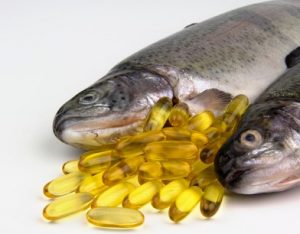 After 6 months of supplementing with over 2,000 mg/day of DHA:
After 6 months of supplementing with over 2,000 mg/day of DHA:
- DHA levels in the blood had increased by 200%.
- However, DHA levels in cerebrospinal fluid had increased by only 28%.
- Moreover, DHA levels in cerebrospinal fluid were 40% lower in subjects who had the APOE4 gene compared to subjects with the APOE2 and APOE3
EPA levels in cerebrospinal fluid averaged about 15-fold lower than DHA levels. When they looked at the effect of DHA supplementation on EPA levels.
- EPA levels in plasma had increased by 50%.
- EPA levels in cerebrospinal fluid had increased by 43%.
- EPA levels in cerebrospinal fluid were 3-fold lower in subjects who had the APOE4 gene compared to subjects with the APOE2 and APOE3
The authors concluded:
“We observed only a modest (28%) increase in cerebrospinal fluid DHA levels with 2152 mg per day of DHA supplementation. This finding has implications for past clinical trials that have used lower doses (e.g. 1 g daily of DHA supplements or less) and were overwhelmingly negative. Using lower doses of omega-3 supplements may have resulted in limited omega-3 brain delivery.”
“Another aspect affecting the response to DHA supplementation is APOE4 status. Subjects with the APOE4 gene showed lower DHA levels and significantly lower EPA levels than subjects with other APOE genes”.
“In summary, our study suggests that higher doses of omega-3 fatty acids (2 or more g of DHA) are needed to ensure adequate brain delivery, particularly in APOE4 carriers…Past low dose (1 g per day or less) omega-3 supplementation trials in dementia prevention may not have provided adequate brain levels to fully evaluate the efficacy of omega-3 supplementation on cognitive outcomes.”
Based on the results from this study the authors are currently testing the effect of B vitamins and high dose DHA supplementation on cerebrospinal fluid fatty acid levels, brain imaging, and cognitive outcomes in a larger ongoing clinical trial.
What Does This Study Mean For You?
 The ability of the omega-3 fatty acids DHA and EPA to reduce the risk of cognitive decline, dementia, and Alzheimer’s Disease is confusing. Studies disagree.
The ability of the omega-3 fatty acids DHA and EPA to reduce the risk of cognitive decline, dementia, and Alzheimer’s Disease is confusing. Studies disagree.
In situations like this, most experts dismiss the hypothesis as “unproven”. However, I like to ask, “What are we missing?”
One recent study provided a clue. It suggested that omega-3s and B vitamins were interdependent. We need both to reduce cognitive decline. However, that might not be the complete answer.
This study gave both DHA and B vitamins to subjects and discovered another interesting clue. The study suggests we may not have been giving subjects enough omega-3s to see a significant effect on cognitive decline.
Let me start by saying this study did not test whether or not DHA supplementation prevents cognitive decline, dementia, and Alzheimer’s Disease. Nor does it tell us how much DHA is needed to prevent Alzheimer’s Disease, other than to show that anything less than 2 g per day is likely to be inadequate.
However, the study did make two important advances:
#1: It showed just how difficult it is to deliver adequate amounts of DHA and EPA to the brain. This is important because it shows:
- Most previous studies have not used high enough doses of DHA or DHA plus EPA to evaluate the effect of omega-3 fatty acids on cognitive decline. Those studies were not simply negative. They were doomed to failure. The studies were worthless.
- That means we should stop saying that the ability of omega-3s to prevent cognitive decline and diseases like Alzheimer’s is unproven. Instead, we should say that hypothesis has not adequately been tested.
- That also means future studies of the ability of DHA to reduce the risk of cognitive decline, dementia, and/or Alzheimer’s will need to use much higher doses or a better delivery system to get adequate amounts of DHA and EPA into the brain.
#2: It showed that the APOE4 gene significantly decreases the ability of the brain to accumulate DHA and EPA. This has several important implications.
- Because both DHA and EPA are vital for brain health, this may explain why the APOE4 gene increases the risk of Alzheimer’s Disease.
- It also means those at highest risk for Alzheimer’s Disease are the ones who are most likely to have difficulties accumulating DHA and EPA in their brain.
- Once again, it means future studies of the ability of supplemental DHA to reduce the risk of Alzheimer’s Disease will need to use much higher doses of DHA.
The Bottom Line
We are an aging population. As such, issues like cognitive decline, dementia, and Alzheimer’s Disease are of increasing concern. After all, what is the good of reaching your “Golden Years” with a healthy body if you lose your mind?
The ability of the omega-3 fatty acids DHA and EPA to reduce the risk of cognitive decline, dementia, and Alzheimer’s Disease is controversial.
- Association studies show that greater intake and higher blood levels of the omega-3 fatty acids EPA and DHA are associated with lower risk of Alzheimer’s Disease.
- However, most placebo-controlled clinical trials with either DHA alone or DHA + EPA have come up negative.
In situations like this, most experts dismiss the hypothesis as “unproven”. However, I like to ask, “What are we missing?”
One recent study provided a clue. It suggested that omega-3s and B vitamins were interdependent. We need optimal amounts of both to reduce dementia. However, that might not be the complete answer.
This study gave both DHA and B vitamins to participants and discovered another interesting clue. The study suggests we may not have been giving subjects enough omega-3s to see a significant effect on cognitive decline.
The authors of the study hypothesized:
- Uptake of DHA and EPA by the brain is very inefficient, and previous studies have not used sufficient doses of DHA or DHA plus EPA to see a significant effect on cognitive impairment.
- The APOE4 gene, which is known to increase the risk of Alzheimer’s Disease, further decreases the uptake of DHA and EPA by the brain.
Their study confirmed their hypotheses and made two important advancements:
#1: It showed just how difficult it is to deliver adequate amounts of DHA and EPA to the brain. This is important because it shows:
- Most previous studies have not used high enough doses of DHA or DHA plus EPA to evaluate the effect of omega-3 fatty acids on cognitive decline. Those studies were not simply negative. They were doomed to failure. The studies were worthless.
- That means we should stop saying that the ability of omega-3s to prevent cognitive decline and diseases like Alzheimer’s is unproven. Instead, we should say that hypothesis has not adequately been tested.
- That also means future studies of the ability of DHA to reduce the risk of cognitive decline, dementia, and/or Alzheimer’s will need to use much higher doses or a better delivery system to get adequate amounts of DHA and EPA into the brain.
#2: It showed that the APOE4 gene significantly decreases the ability of the brain to accumulate DHA and EPA. This has several important implications.
- Because both DHA and EPA are vital for brain health, this may explain why the APOE4 gene increases the risk of Alzheimer’s Disease.
- It also means those at highest risk for Alzheimer’s Disease are the ones who are most likely to have difficulties accumulating DHA and EPA in their brain.
- Once again, it means future studies of the ability of supplemental DHA to reduce the risk of Alzheimer’s Disease will need to use much higher doses of DHA.
Based on the results from this study the authors are currently testing the effect of B vitamins and high dose DHA supplementation on DHA and EPA levels in the brain, brain imaging, and cognitive outcomes in a larger ongoing clinical trial.
For more details, read the article above. For a better understanding of the roles of DHA, EPA, and the APOE gene in brain health, you may want to read my “Biochemistry 101” section above.
These statements have not been evaluated by the Food and Drug Administration. This information is not intended to diagnose, treat, cure, or prevent any disease.








